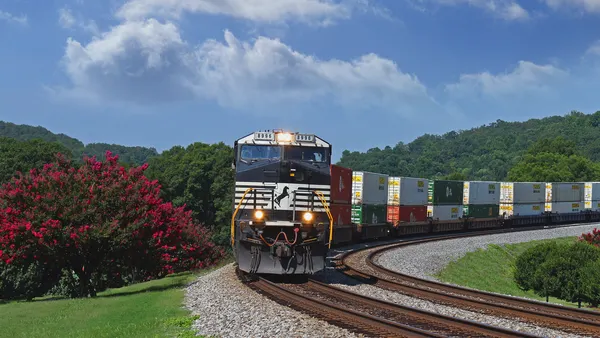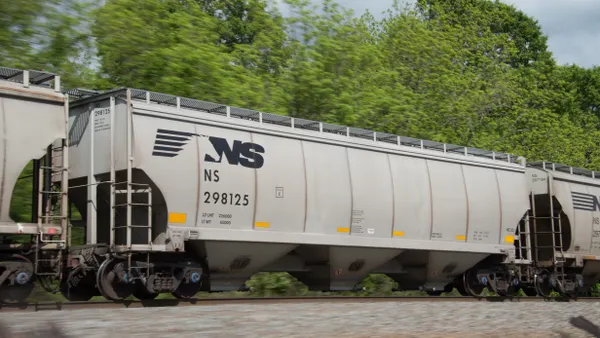"The railway knows exactly where your freight is … they don’t tell you," said Nick Little, director of railway education at the Center for Railway Research and Education at Michigan State University, to a room full of shippers who offered back a chuckle and groan at the APICS conference in Chicago earlier this month.
One questioner from the audience brought up CSX’s shift to precision scheduled railroading (PSR) in 2017, lamenting lost cars and deliveries that came days late. The room was in agreement: Railroads are not focused on customer service. So why not?
The word "monopoly" is often thrown around with regard to rail freight. It’s not like there are insurgent startup railways. Seven private companies own the rails and just recently have any of them stepped out of the status quo when it comes to service. Little said it could be a question of mindset.
"Of the seven [major railroads] there’s only one of those that actually describes itself as a supply chain company – that’s Canadian National. All the others are railways, and that’s all they want to be," he said.
But the main reason for a lack of emphasis on customer service, said Little, is that railroads aren’t as accountable to their customers as they are to their shareholders. "They want to run a better more effective, more efficient railway, so they concentrate on what Wall Street wants them to concentrate on, which is their operating ratio."
Operating ratio is a measure of efficiency comparing costs to sales – a "bad measure" of success, according to Little.
"If you’re only focusing on operating ratio then you’re only focused on cost-cutting and you’re not focusing at all on growing your top line revenue," said Jocelyn Hill, director of public affairs and assistant general counsel at Conrail.
PSR started as just that — a way to get more cost efficiency by routing cars individually. But during CSX’s rocky transition to PSR, lacking customer service was paired with the operational chaos that still has customers talking.
Union Pacific announced in September that it will be transitioning to PSR gradually this year. Though Union Pacific has decided to phase in the practice regionally rather than all in one breath as CSX did, many shippers still have a bad taste in their mouths. But at least one Union Pacific customer is on board with the change.
"I would be [in favor of PSR] especially if the railways can figure out a way to improve their service," said Bill Swofford, Trucking Manager for Tindall Haul and Erect Corporation in Spartanburg, South Carolina.
He’s in favor of any change that put his rail carrier on a road to more precise delivery scheduling and better service.
"The railroad doesn’t tell you between three o’clock and five o’clock on a day — they tell you between this day and this day, and then you ask them if they can narrow that down, and they say 'no.' If you try to complain about it, they’re just like 'it is what it is. You can like it or you can lump it,'” said Swofford.














